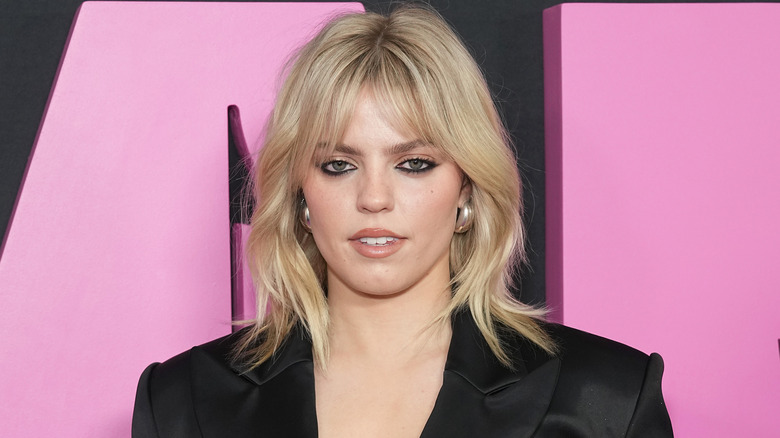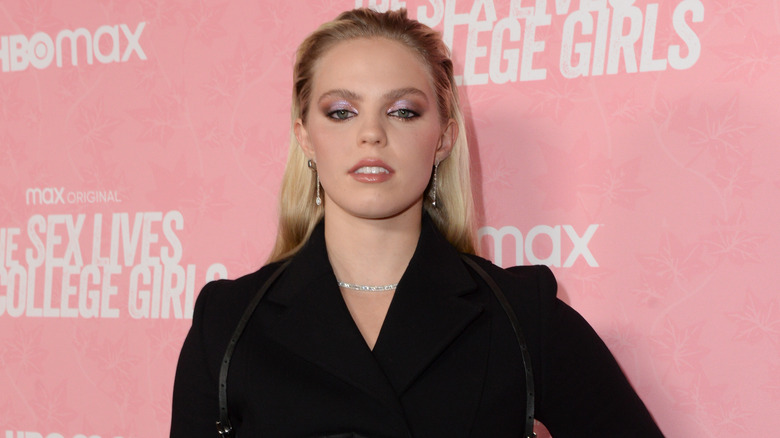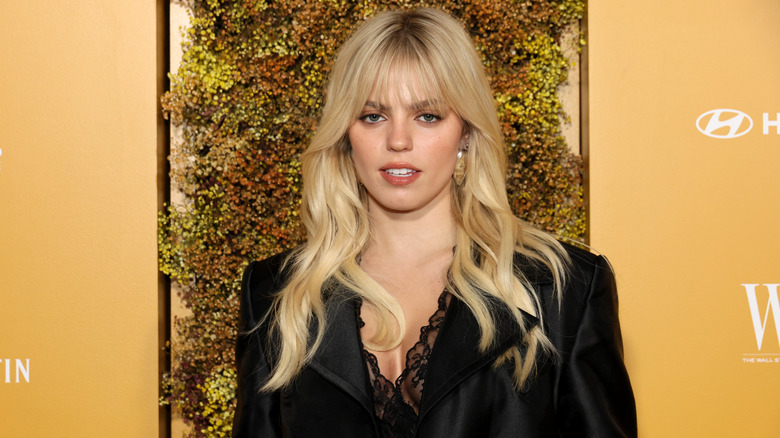Everything Reneé Rapp Has Said About Her Sexuality
It hasn't been that long since Reneé Rapp got her big break in Hollywood, but she's already been elevated to the status of beloved queer figure. The "Mean Girls" star is known for her unabashed openness about her own sexuality, something that has empowered others to do the same. "I'm like the most palatable queer that queer gets," she told The Los Angeles Times. "So when I'm pushed as a 'queer icon' — that's very sweet." And while she's proud and loud about her sexual identity now, it surely didn't start that way.
Rapp's journey towards embracing her sexuality began in high school when she came out as bisexual to her family. At the time, she thought her dad wasn't taking her seriously, recalling an incident where he denied her request for a male friend to sleep over while being nonchalant about girls she had crushes on staying the night. "I think he was just, like, 'You're not gay, bisexual people aren't real.'" But to her dad, her identity was a non-issue. "It was, like, OK, you like a girl? Do whatever, that's fine," he said.
While Rapp had her parents in her corner from day one, she became her own worst critic. When she landed the role of a queer character in Mindy Kaling's "Sex Lives of College Girls," she admitted to grappling with impostor syndrome. "I was being very homophobic to myself. I was like, I don't deserve to be doing this; I'm not gay enough," she told The Cut. But it was through embodying that character that Rapp discovered her own comfort zone within her sexual identity, and she now wears her queerness like a badge of honor.
Playing a queer character helped her come to terms with who she was
When Reneé Rapp snagged the role of Leighton in "Sex Lives of College Girls," she was over the moon. The character was initially a closeted lesbian before finding acceptance, which she thought was the perfect fit for her. In many ways, it was, but it didn't take long until she discovered that what seemed like an easy acting gig would be a challenge, especially since portraying Leighton meant delving into her own past struggles.
"I thought it would be the thing I knew because I came out when I was pretty young," she told Vulture. "But that part of Leighton, which I thought would be what I knew, ended up being the most difficult. It was like vomiting out my deepest, darkest fears about my own internalized homophobia. It made for some very emotional days."
Still, Rapp wouldn't trade the experience for anything. Like her character, she underwent a significant transformation, gaining more confidence and shedding long-held inhibitions. "Truly, though, so much of Leighton is me, and so much of Leighton has helped me understand myself," the "Too Well" singer shared with Vogue. "I don't think that I had an amazing relationship to my queerness, but through playing Leighton, I feel like I'm being much more openly queer, because it is a public part of who I am, and I'm very proud of that. I definitely realized that I have a lot of little things I need to f***ing get over; like, I have a lot of internalized homophobia."
Coming out 'improved the quality of her life'
Reneé Rapp is thoroughly enjoying the sense of freedom that comes with being true to herself, but she said baring her soul in public has its fair share of challenges. "I get asked about my sexuality and eating disorders like it's my right and left arm. And in a lot of ways, I love that because I've been so incredibly open about it and it's something that I really, not enjoy talking about, but I feel like I want to," she told AP News.
She wouldn't have it any other way, though she's aware that she has it easier compared to her peers. "It has improved my quality of life beyond belief," she shared with The Independent. "I'm so fortunate in this regard because I don't deal with a tonne of homophobic sh** compared to my other friends who are very visibly queer."
Rapp also understands that her openness about her queerness has turned her into somewhat of a spokesperson for those who share her experiences, and it's a role that she takes seriously. Her platform gives her immense influence, and that's something she always wants to be thoughtful about and aware of. "There's an inherent responsibility. If you're somebody who has any sort of visibility as a queer person, right?" she added. "You don't want to be spewing bullsh**. You want to be careful and respectful and inclusive and really honest."



